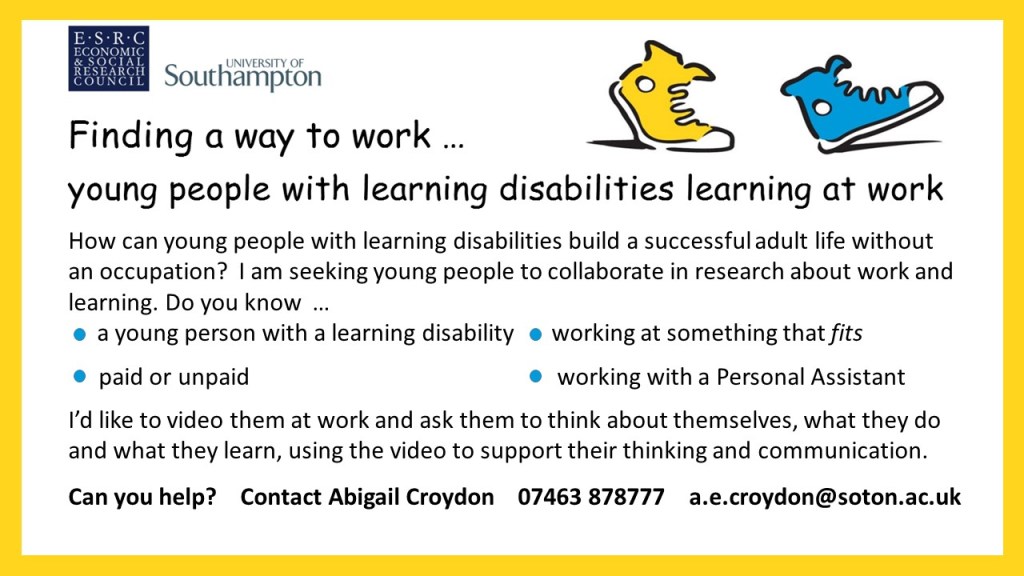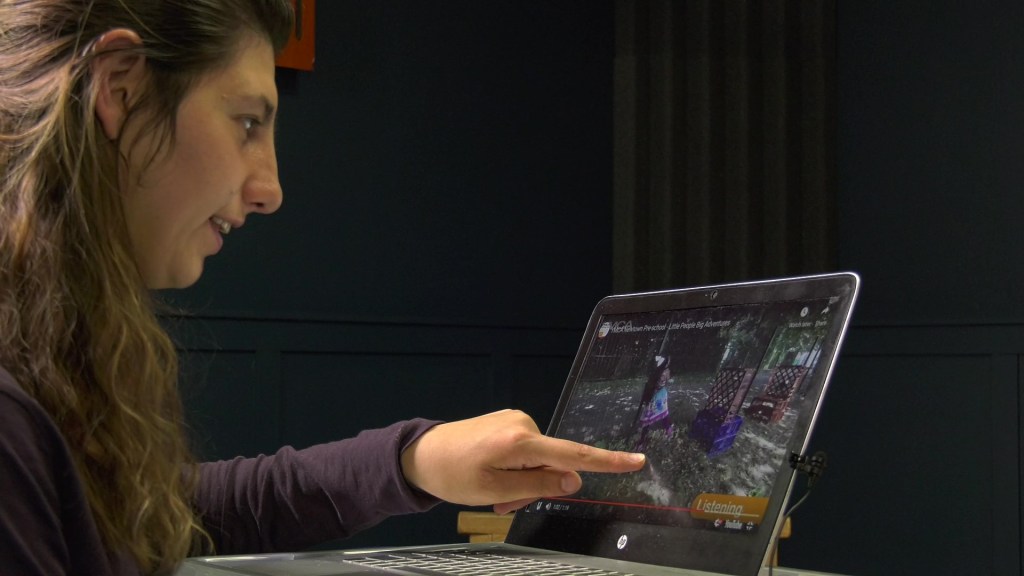Looking to recruit young people now!

Interested in taking part?
Take a look at the information video
Information for young people here
Information for family, allies and friends here

Interested in taking part?
Take a look at the information video
Information for young people here
Information for family, allies and friends here

Paid work – formal employment – demands specified levels of attainment and productivity so that many pathways to work are not open to people with intellectual and developmental disabilities. As most other adults in countries like the UK have paid work and work most of the time, this results in a huge divide in lived experience and opportunties to learn through social participation. ‘Finding a way to work’ looks at the learning that may take place on both sides of the divide when young people take part in forms of work that suit their interests and strengths, with dedicated support from a Personal Assistant. The research will consider how far working in this way may offer some of the ‘goods of work other than money’ (Gheaus and Herzog, 2016) – especially the reciprocal learning that arises when young people are able to participate, to make a social contribution, experience community and gain social recognition.